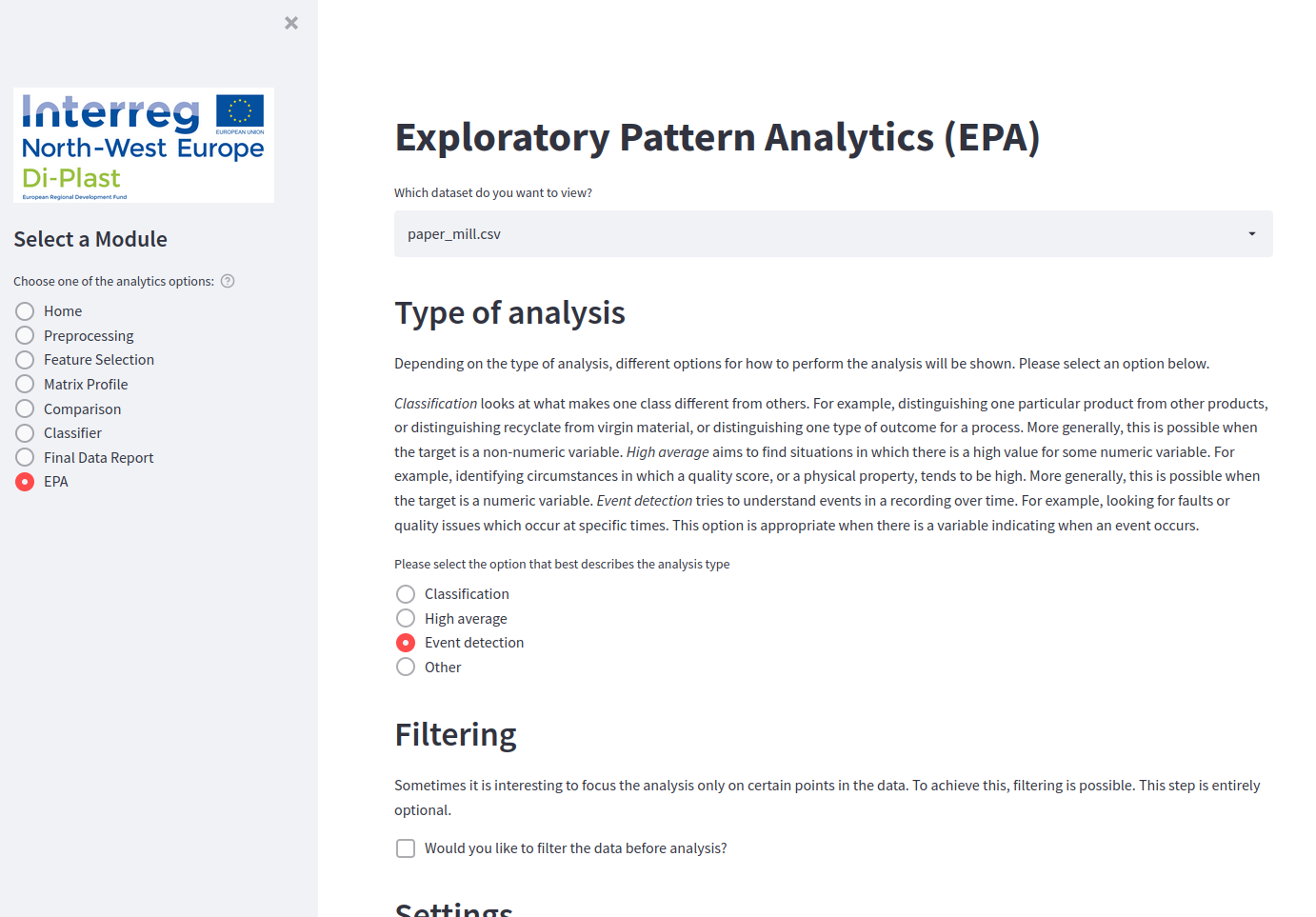 |
Type of tool: e.g. web application or desktop application
Required skills:
- Process/material knowledge: e.g. knowledge of material properties
- Digitalization knowledge: e.g. no programming
Short description of the tool:
- Detailed description: Link to the guideline:
Disclaimer:
(Disclaimer Text)
How to use/download/access it:
e.g. got the the gitup [link], copythe code into [XY] and start using
Use case/problem: Selecting material (recyclate) for specificproduct requirements
Description of the problem the tools solves:
[General] + [Tool-specific]
Contact person of the tool: Stefan Bloemheuvel
Related tools:
- Analyse and Visualize your process data with data analytics -> Data Analytics
- Get guidance to set up a working data infrastucture -> Data Infrastructure Wiki
- Find the right sensor to survey your process -> Sensor Tool
- Improve internal information and material flow -> VSM
- Match material requirements with material properties -> Matrix
Tool Description#
An important step in data analysis is data exploration, to achieve a betterunderstanding of the data. The Exploratory Pattern Analytics (EPA)tool works on prepared/preprocessed tabular data. It providesexplanatory patterns, i.e., simple rules between some parameters(e.g., temperature, pressure) that are predictive for a certaintarget parameter (e.g., scrap rate). This provides important insightsenhancing data understanding.For example, it could be used to better understand why certain known outliers occurin process data.
Guidelines#
Before you get started, take a look at the guidelines and make yourself familiar with how to use the tool.
and make yourself familiar with how to use the tool.
Getting Started#
The tool is available through the Data Analytics tool interface at: https://github.com/cslab-hub/Data_Analytics_DIPLAST/tree/epa . The python interface for programmers is available at: https://github.com/cslab-hub/sd4py
. The python interface for programmers is available at: https://github.com/cslab-hub/sd4py .
.
